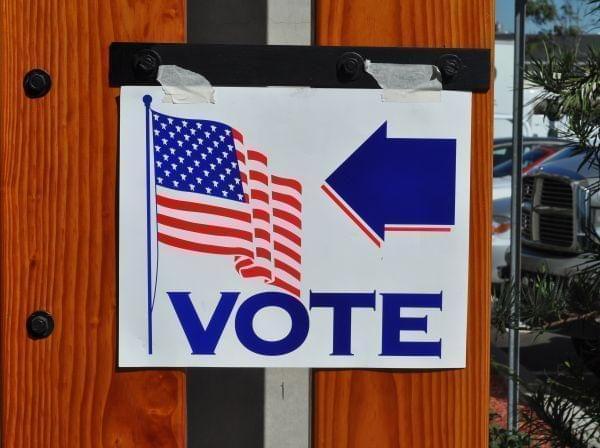Common Myths About Voting; Disability And Language Access; New Citizens Voting

tom.arthur/Flickr (CC BY-NC-SA 2.0)
On The 21st: Here’s a quick civics quiz for you. You aren’t registered yet. You don’t speak English. You have a felony conviction. You can’t vote, right? Wrong! We tackle common voting misconceptions. And, voting is for all US citizens but the process can be more challenging if you have a disability, or if you have trouble reading English. What systems are in place to make sure everyone can vote? And, tomorrow is Election Day and many voters are turning out for the very first time, including new citizens.
When it comes to voting, there are a lot of myths out there when it comes to voting, how to do it, and who is allowed. So we invited a couple of civic pros to help set us straight. Kimberlie Kranich is the Director of Engagement and Educational Outreach here at WILL. She’s also a Deputy Registrar for Champaign County which means she’s been trained in how to register people to vote. She joined us in our Urbana Studio.
Stephanie Whiteside is a reporter with the Illinois Newsroom collaborative and WSIU in Carbondale where she joined us on the line from.
Here's What You Need to Know About Voting! says @ILNewsroomhttps://t.co/yOcWiEUYoA
— The 21st (@21stShow) November 5, 2018
Plus -
You’ve heard it everywhere by now - election day is tomorrow. And you don’t have to be registered to vote, you can do that tomorrow at your polling place. Just make sure to bring two forms of photo identification.
But what’s it like if you have a disability that might make it hard to vote, especially if you’re in an unfamiliar polling place?
Those barriers might be one reason why 2.2 million eligible voters with disabilities didn't vote in 2016.
Joining me on the line was Sarah Blahvec. Sarah is a Disability Vote Organizer with the National Council on Independent Living, a DC based advocacy group.
Voting can also be difficult if English is not your first language. In Chicago for example if your first language is Hindi, Chinese or Spanish, you can get help with translation voting. It’s required by law.
We were joined on the line by Sik Son, who’s the President of the organization Korean American Voice. Also joining us we had Brandon Lee. Brandon is from Asian Americans Advancing Justice Chicago. He has also been a poll monitor for over a decade.
On a federal level every polling place needs to have at least one accessible option. "But this is a very broad law," explains @Sblahov of @NCILAdvocacy
— The 21st (@21stShow) November 5, 2018
As of 2016, 60% of polling places still had barriers.
KA Voice helps Korean Americans with voter access, explains @sohnsik
— The 21st (@21stShow) November 5, 2018
Polish is another major language needed, and there are hotlines you can call, says @bleeinternets @aaaj_chicago
Thanks for getting out the word! Don't forget the hotlines for Spanish, Arabic, Chinese, Vietnamese, Korean, Bengali/Bangla, Hindi, Urdu and Tagalog speakers pic.twitter.com/DF8IatpEuS
— CLC for Civil Rights (@ChgoCivilRights) November 5, 2018
And -
Every year, hundreds of thousands of adults become naturalized American citizens. In 2016 that number was around 750,000. And Illinois had the sixth largest number of naturalized citizens among U.S. states.
Those new citizens are also new voters. As we get ready for Election Day tomorrow, we wanted to spend some time with Illinoisans who are casting their ballot for the very first time.
Dr. Sunita Singh became a citizen a year and a half ago along with many members of her family. She’s a physician living in Chicago. We first talked to her on The 21st a year and a half ago when she became a citizen.
And Aleks Ksiazkiewicz became a citizen this September. He’s also an assistant professor of political science at the University of Illinois and he joined us in our Urbana studios.
"It was that moment after the election that really struck me. I'm really looking forward to voting tomorrow." - 1st Time Voter Political Scientist @genopolitics @IllinoisPolSci
— The 21st (@21stShow) November 5, 2018

